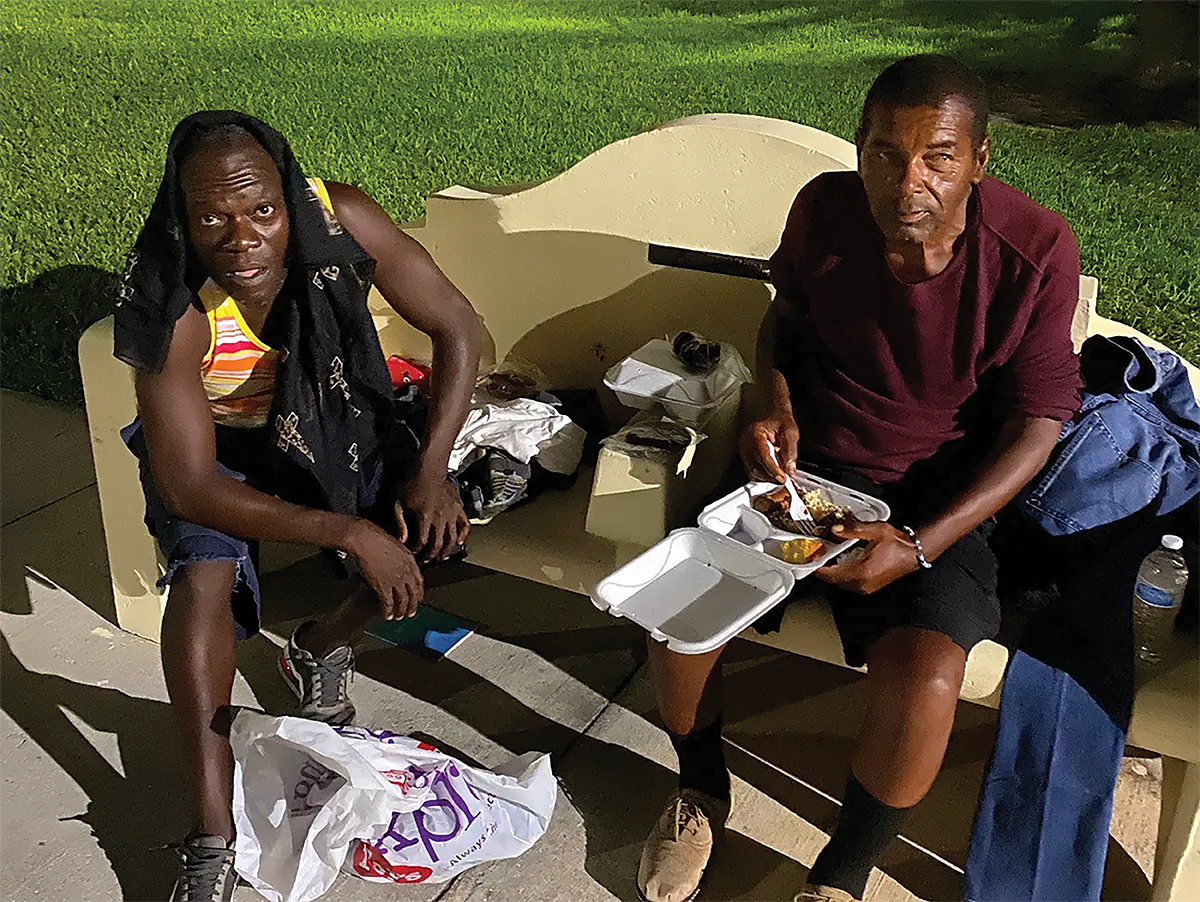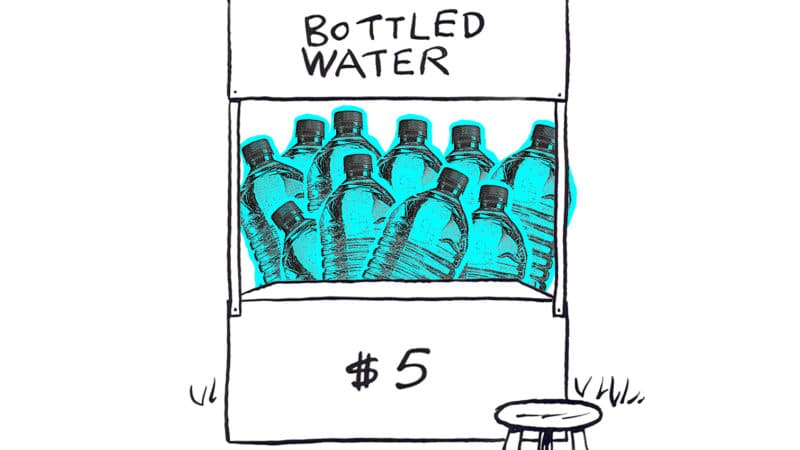West Palm Beach, among other towns and cities across the state, have been trying to stop organizations from feeding the homeless
By Robert Davis
A spate of laws in Florida that are designed to prevent people from feeding the unhoused won’t deter good Samaritans from helping those in need, advocates say.
Cities ranging from West Palm Beach to Lakeland have ordinances on the books that limit the number of people that service organizations can feed. These ordinances also seek to limit where service organizations can feed people and levy fines and threaten jail time against those who continue feeding people after receiving a written warning. While some courts have said that similar ordinances are unconstitutional, advocates say cities continue to put these ordinances in place to hide visible poverty from tourists in the state.
We Care About People, an organization that has been feeding local homeless people for several years, is one group that recently sparred with the City of West Palm Beach over its anti-feeding ordinance. In May, Canta Chestnut, the group’s organizer, was given a formal warning by West Palm Beach police officers for feeding local homeless people. Chestnut told the Homeless Voice that she suspects West Palm Beach is really trying to force homeless people away from parks and other places where tourists gather.
The latest point in time count found more than 1,800 people experiencing homelessness in Palm Beach County, which is the highest total the county has recorded since 2011. Among those people, only 650 were in some sort of shelter while more than 1,100 were living unsheltered.
“The waterfront is West Palm Beach’s creme-de-la-creme, and so they don’t want tourists and the elite to see the visible blight of homelessness,” Chestnut said. “But the city doesn’t provide any services to help them get off the street. We don’t even have a shelter in West Palm Beach.”
Feeding the homeless has been a controversial topic since at least 2007 when the National Coalition for the Homeless published a report that found several of the largest cities in the U.S. have ordinances that criminalize sharing food. For example, an ordinance in Orlando prohibited people from serving groups of 25 people or more without a permit. However, the city only issued two permits per year. People who violated the ordinance could be punished by a fine of up to $500 or 60 days in jail.
Cities ranging from Atlanta, Georgia to Portland, Oregon have similar ordinances on their books. While advocates have sued to have these ordinances overturned, the courts have not been consistent in their rulings on the ordinances. A federal judge in 2008 ruled that Orlando’s anti-feeding ordinance was unconstitutional, but an 11th Circuit Court of Appeals panel overturned the ruling three years later.
In August, a group called Food Not Bombs, which provides meals for the homeless four times per week, convinced a Houston judge that the city was using the ordinance to target charitable organizations. The law was originally passed in 2012, but the city didn’t enforce the law until it targeted a Food Not Bombs distribution, an organizer named Nick Cooper told the Associated Press.
“This law that the city has passed is absurd. It criminalizes the Samaritan for giving,” lawyer Paul Kubosh, who represented Food Not Bombs, told local news station KPRC 2 after the verdict.
Some legal scholars trace the roots of the controversy over feeding the homeless to a 9th Circuit ruling in United States v. Millis. In the case, a man named Daniel Millis was arrested for leaving full gallon-sized water bottles in the Buenos Aires National Wildlife Refuge to prevent migrants from dying of dehydration while they tried to cross the border into the U.S. The court ruled in 2010 that Millis’ actions were protected because the federal anti-littering statute that he was charged under was too broad. However, this ruling left avenues for cities to restrict charitable giving to homeless and indigent populations, according to an article in the Boston College Third World Law Review.
It is difficult to gauge how Florida’s anti-feeding ordinance enforcement compares with other states. Even so, Chestnut said she has been fighting back against West Palm Beach officials who say the ordinance is needed to protect public health and safety. Chestnut has spoken at several city council meetings since the May encounter and told local officials that she doesn’t plan to stop feeding the homeless any time soon.
“It’s getting ridiculous with all the hoops the city wants us to jump through just to give food to homeless people,” Chestnut said. “Each time I talk to them, I say the law infringes upon my sincerely held religious beliefs as a Christian woman.”
Despite the legal hurdles, Chestnut said there are ways for service organizations to continue feeding the homeless. For instance, she said she will bring a roll of 22 tickets with her to feeding events. Once she runs out of tickets, Chestnut said she will get in her car and drive around the block before coming back to distribute the rest of the meals she prepared.
She also said that service organizations should prepackage the food they are distributing because of the way the ordinances are written. This allows service organizations to distribute fresh and nutritious food as well.
“Everyone of these politicians put their hand on the bible before taking their oath of office,” Chestnut said. “But it seems like none of them have actually cracked the book open and read the word of God.”



